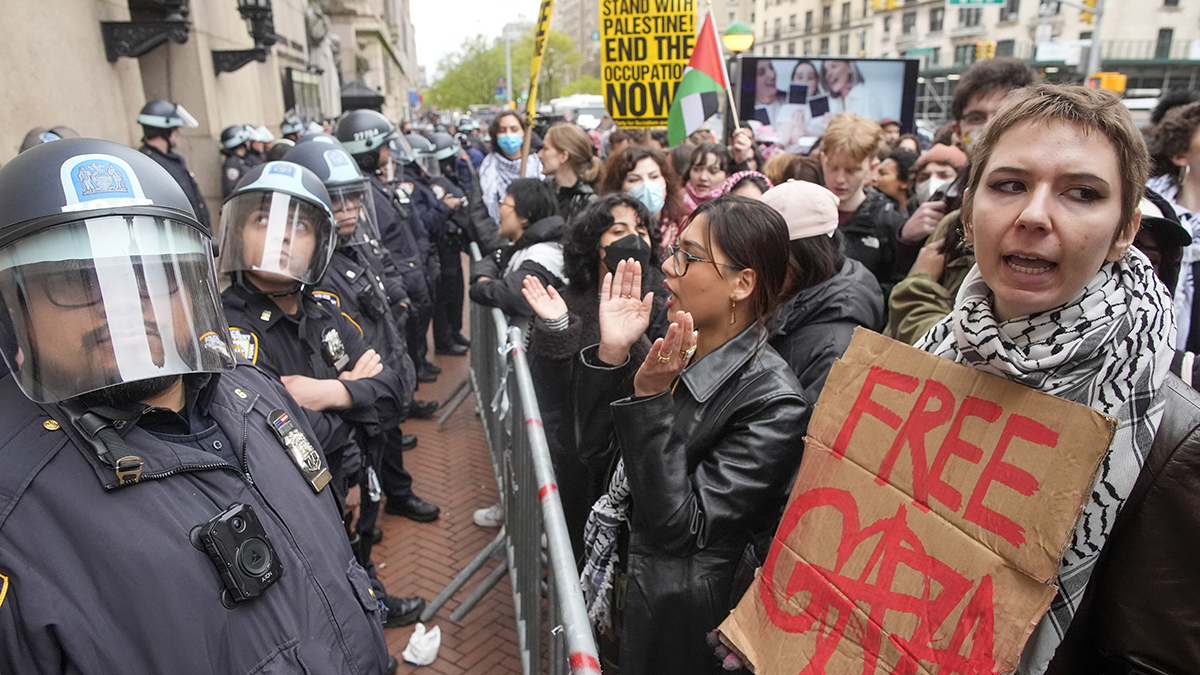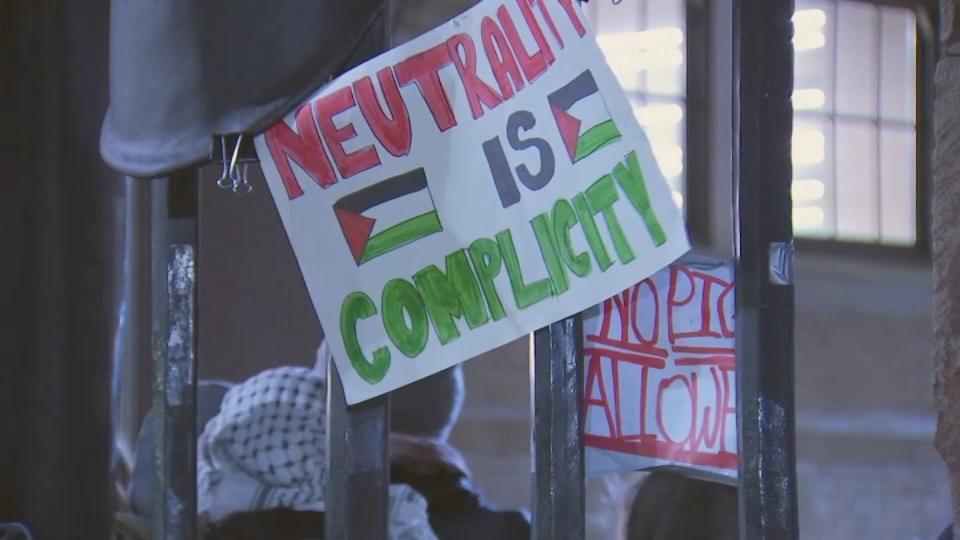Dozens of students at MIT, Tufts, and Emerson College have set up camp in solidarity with Columbia University students who were forcibly removed from their encampments last week.
A coalition of student groups has set up a tent encampment on MIT's campus, calling for the school to divest from any financial ties it has with Israel.
"We are going to insist the school change its relationship and funding," said student Gabriela Martini.
One of the groups in the coalition is Jews for Ceasefire, which held a Passover Seder inside the encampment on the second night of the Jewish holiday.
Get Boston local news, weather forecasts, lifestyle and entertainment stories to your inbox. Sign up for NBC Boston’s newsletters.
"Looking back at the pain of our Jewish history is a call for us to understand what is happening in Gaza and make sure no one has to go through suffering," said student Quinn Perian.
But MIT Professor Retsef Levi, who's part of the MIT Israel Alliance, says the vast majority of the Jewish community on campus believes the tent encampment — including Jews for Ceasefire — is antisemitic.
"I think these students are lost souls," said Levi. "They're confused. This group is vocal, but it essentially represents a very extreme and small group of Jewish people that lost their way."
The tent encampment is outside the building which houses the Jewish organization Hillel.
Levi says Hillel was told to have its Passover Seder Monday night elsewhere out of safety concerns, while allowing the encampment to remain.
"This is clearly a sign that things are not under control," said Levi. "A sign MIT lost its way."
Students at other schools are also calling for change.
"We have four demands," said Emerson College sophomore Amrita Bala. "It's to disclose their divestments, cut ties and divest from Israel, drop all attacks on student organizers, and speak out for an immediate and permanent ceasefire and an end to the occupation of Palestine."
At Harvard, the student-led Palestine Solidarity Committee was suspended Monday, and Harvard Yard remained closed Tuesday.
Harvard University has not responded to NBC10 Boston’s request for an explanation for these decisions.
Columbia alum Robert Kraft said he has stopped giving money to Columbia University until it ensures the safety of Jewish students.
In 2019, Kraft created the Foundation to Combat Antisemitism in a response to what Kraft saw as a rise in Jewish hate in the U.S.
“You can protest, you can disagree, but what you can't do is threaten somebody,” said FCAS President Tara Levine.
Levine noted that Jewish hate on college campuses has spiked since the start of the Hamas-Israel war in October.
“Those protests have moved from disagreeing on a topic to being threatening and antisemitic. And the result of that is that Jewish students feel unsafe on the campuses that they're studying. And for us, that's unacceptable,” she said.
Administrators at Tufts, Emerson College and MIT said they continue to monitor the student encampments and have not decided to remove them.




